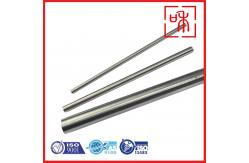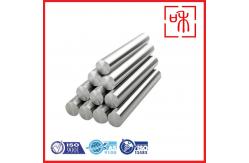Bar-Shaped Grade 3 Titanium Bars The Perfect Combination Of Strength And Biocompatibility
|
|
The Role of Grade 3 Titanium Bars in the Medical IndustryTitanium alloys are essential in the medical industry due to their unique properties that meet the stringent requirements of medical applications. Among these, Grade 3 titanium is particularly favored for use in bars for various medical devices and implants. This article explores the characteristics, advantages, and applications of Grade 3 titanium bars, highlighting their importance in patient care and healthcare technologies. Properties of Grade 3 TitaniumComposition and Mechanical PropertiesGrade 3 titanium is a commercially pure titanium alloy, consisting of approximately 99% titanium along with trace amounts of elements like iron and oxygen. This composition results in:
BiocompatibilityOne of the standout features of Grade 3 titanium is its biocompatibility. This property allows implants to integrate seamlessly with human tissue without causing adverse reactions. The purity of the alloy minimizes the risk of allergic responses, making it ideal for long-term implants that interact with body fluids and tissues. Corrosion ResistanceGrade 3 titanium's corrosion resistance is vital for medical applications. The protective oxide layer formed on its surface effectively prevents degradation when exposed to harsh bodily environments, including various fluids. This resistance ensures the longevity and functionality of medical devices, which is crucial for patient safety and successful outcomes. Applications in the Medical IndustryThe versatility of Grade 3 titanium bars makes them suitable for a wide range of medical applications:
Additionally, the smooth surface finish of Grade 3 bars helps reduce bacterial adhesion, which is critical for minimizing infection risks during and after surgeries. Manufacturing and CustomizationThe manufacturing processes for Grade 3 titanium bars include forging, machining, and extrusion. These techniques allow for:
Moreover, Grade 3 titanium bars can undergo surface treatments like anodizing and coating. These treatments enhance properties such as wear resistance and reduce friction, further improving their suitability for high-performance medical applications. ConclusionGrade 3 titanium bars play a critical role in the medical industry, thanks to their unique properties, including biocompatibility, corrosion resistance, and strength. Their diverse applications in dental and orthopedic devices, combined with advanced manufacturing capabilities, underscore their significance in enhancing patient care and advancing healthcare technologies. Technical Parameters:
Applications:Orthopedic implants include artificial joints, metal plates,
orthopedic nails, metal orthopedic use rods, intramedullary nails,
bone needles, and spinal fixation devices. |
||||||||||||
| Product Tags: Bar-Shaped Grade 3 Titanium Bars Strength Titanium Bars |
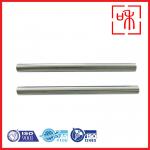
|
Grade 9 Gr9 Titanium Products Titanium Bars Alloy Round Bar For Industrial Applications |
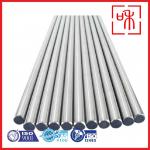
|
ASTM B348 Gr9 Titanium Bars Alloy Round Bar For Demanding Environments Purposes |
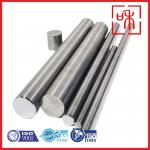
|
ASTM B348 Grade 5 Titanium Alloy Bar Titanium Bars Titanium Round Rod For Medical Purposes |
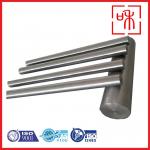
|
Grade 2 Grade 5 Titanium Alloy Bar Titanium Bars ASTM B348 Titanium Round Rod For Industrial Applications |
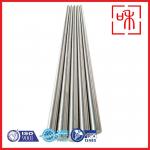
|
Titanium Alloy Bar Titanium Bars Sandblasted Titanium Bars Grade 7 ASTM B348 Titanium Round Rod |
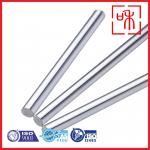
|
Metal Grade 12 Titanium Round Rod For Industrial And Medical Applications ASTM B265 |

